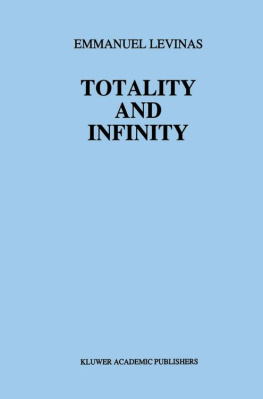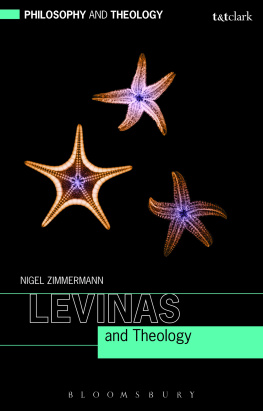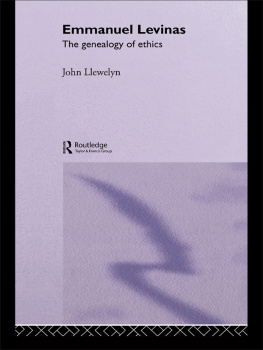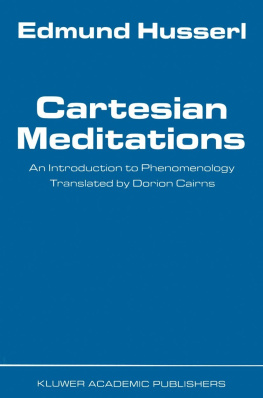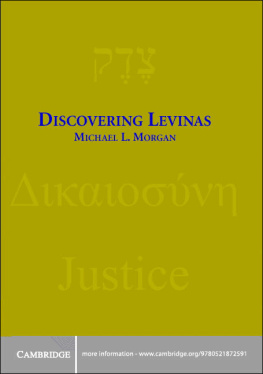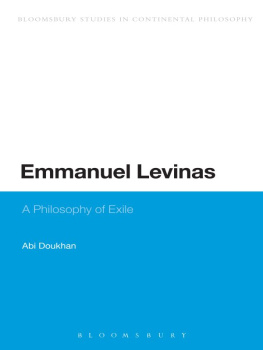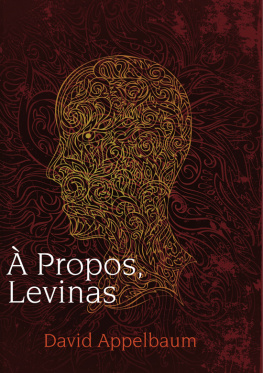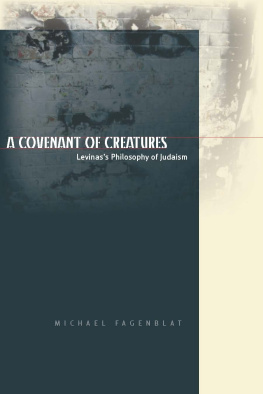ISBN 978-94-009-9344-0 ISBN 978-94-009-9342-6 (eBook)
DOI 10.1007/978-94-009-9342-6
Kluwer Academic Publishers 1991
All Rights Reserved
No part of the material protected by this copyright notice may be reproduced or utilized in any form or by any means, electronic or mechanical, including photocopying, recording or by any information storage and retrieval system, without written permission from the copyright owner.
Softcover reprint of the hardcover 4th edition 1991
www.springer.com
Ever since the beginning of the modern phenomenological movement disciplined attention has been paid to various patterns of human experience as they are actually lived through in the concrete. This has brought forth many attempts to find a general philosophical position which can do justice to these experiences without reduction or distortion. In France, the best known of these recent attempts have been made by Sartre in his Being and Nothingness and by Merleau-Ponty in his Phenomenology of Perception and certain later fragments. Sartre has a keen sense for life as it is lived, and his work is marked by many penetrating descriptions. But his dualistic ontology of the en-soi versus the pour-soi has seemed over-simple and inadequate to many critics, and has been seriously qualified by the author himself in his latest Marxist work, The Critique of Dialetical Reason. Merleau-Pontys major work is a lasting contribution to the phenomenology of the pre-objective world of perception. But aside from a few brief hints and sketches, he was unable, before his unfortunate death in 1961, to work out carefully his ultimate philosophical point of view.
This leaves us then with the German philosopher, Heidegger, as the only contemporary thinker who has formulated a total ontology which claims to do justice to the stable results of phenomenology and to the living existential thought of our time. There is no doubt that Heideggers early work, Sein und Zeit, is a highly original contribution to philosophy. But as critics have pointed out, it is marked by certain special features and one-sided emphases which are open to serious question. The author himself has apparently recognized the exaggerated anthropocentrism or subjectivism of its point of view which he has tried to correct by an opposite emphasis on a quasi-independent Being in his later and more obscure writings. Another fact needs to be noted. Since the publication of Sein und Zeit in 1927 there has been a great outpouring of German works attacking or defending certain special theses of Heidegger in different fields. But he does not seem to have stirred up original thinking along new lines in his native country.
The present book Totality and Infinity, of Emmanuel Levinas, shows, however, that this is definitely not true in France. The author is thoroughly familiar with recent phenomenology and existential philosophy, and has an exhaustive knowledge of Husserl, Heidegger, Sartre, and Merleau-Ponty. Without these new developments, his work would have been impossible. It contains many penetrating descriptions of patterns of experience as we live them through, and many far-ranging reflections on these. It is basically phenomenological in character. But it is far more than a mere elaboration or correction of past insights. It is not often that one finds a philosophical work that is both radically original and carefully thought through. This book is both. It is striking out along new lines to formulate a general position which is opposed to Husserls transcendental idealism as well as to Heideggers hermeneutic philosophy of Being. In this way it shows the inexhaustible richness of our lived experience and the fruitfulness of reflecting on its forms and patterns. The radical empiricists who, since the time of William James, have doubted that the methods of transcendental idealism fit the patterns of experience, will find much supporting evidence in this work, which is full of novel insights and argument.
According to Levinas, I find myself existing in a world of alien things and elements which are other than, but not negations of myself. The latter is a logical relation which brings its terms together into a neutral system in the light of which each can be understood impartially, as we say. But the world as I originally experience it is not a logical system of this kind, in which no term takes precedence over the rest. My primary experience is definitely biased and egocentric. I take precedence over the various objects I find around me, and in so far as my experience is normal, I learn to manipulate and control them to my advantage, either as the member of a group which I identify with myself or simply as myself alone. In general, these objects are at my disposal, and I am free to play with them, live on them, and to enjoy them at my pleasure.
Levinas finds that this primordial experience of enjoyment ( jouissance ) has been neglected by Heidegger and other phenomenologists, and he devotes many pages to describing it in its major manifestations. There is a strong tendency in all human individuals and groups to maintain this egocentric attitude and to think of other individuals either as extensions of the self, or as alien objects to be manipulated for the advantage of the individual or social self. According to Levinas, neither of these egocentric views does justice to our original experience of the other person, and the most fundamental part of the book is devoted to the description and analysis of this experiencethe phenomenology of the other, as we may call it.
The other person as he comes before me in a face to face encounter is not an alter ego, another self with different properties and accidents but in all essential respects like me. This may be the expression of an optimistic hope from a self-centered point of view which is often verified. The other may, indeed, turn out to be, on the surface at least, merely an analogue of myself. But not necessarily! I may find him to be inhabiting a world that is basically other than mine and to be essentially different from me. He is not a mere object to be subsumed under one of my categories and given a place in my world. Most of us are now familiar with this other-reducing theory which Sartre propounds in his Being and Nothingness. It may describe a widespread manner of dealing with the other person but it fails to do justice to his own existence, as is clearly indicated by the slavery and rebellion to which it leads. Nor finally do we take account of these inner depths of alien existence by regarding the other along Hegelian lines as a mere negation of the self. This only encompasses him in a supposedly neutral system that is readily identified with the rational self. Can it be that the underlying, unifying one of our monistic systems has been the avaricious, power-seeking, organizing, self-same self?
In any case, whether or not they are truly rational, these traditional theories are one-sidedly egocentric and reductive. None of them does justice to the other as I meet him for the first time in his strangeness face to face. I see this countenance before me nude and bare. He is present in the flesh. But as Levinas points out in his revealing descriptions, there is also a sense of distance and even of absence in his questioning glance. He is far from me and other than myself, a stranger, and I cannot be sure of what this strangeness may conceal. Hence the need to show friendly intent which brought forth the earliest forms of introduction and greeting. For example, the closed fist might conceal a knife, and coming open handed means no enmity, as Ortega y Gasset has shown in his reflections on the handshake in his Man and People. But this is only a bare beginning. Even if he comes with no ill will, he remains a stranger inhabiting an alien world of his own. Of course, I may simply treat him as a different version of myself, or, if I have the power, place him under my categories and use him for my purposes. But this means reducing him to what he is not. How can I coexist with him and still leave his otherness intact?

